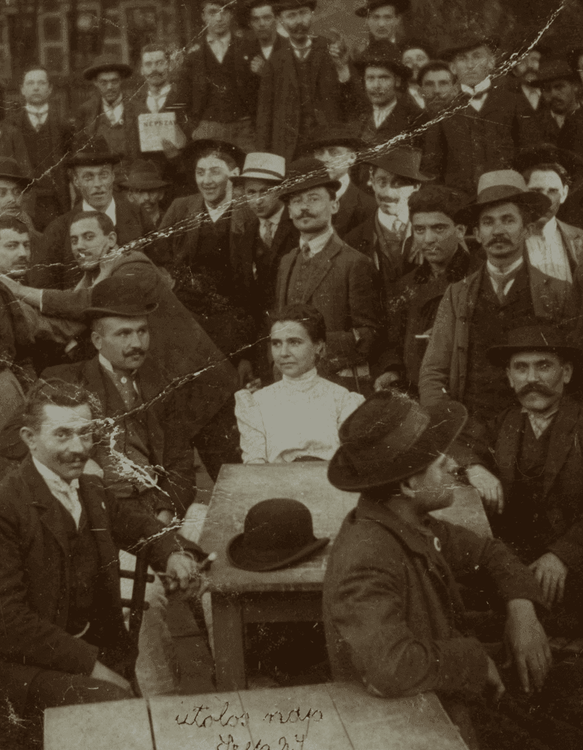Inna Samarina
In the 1980s, Inna Samarina (1934–) was the head of the trade union at the Construction Plant in Bila Tserkva in Soviet Ukraine, where she sought to improve workers’ conditions at the plant and beyond. In a recent interview, Samarina explained that she found trade union work fulfilling because it allowed her to interact with people and address their needs. Her testimony provides a glimpse into the work of a woman trade unionist in the late Soviet Union. The plant employed around 5,500 workers, and Samarina understood that conflicts could arise between trade union representatives and the management, but she believed in cooperation rather than confrontation. For her, both the administration and the trade union had a shared goal: ensuring that workers were satisfied with their jobs and had social and economic security. While disagreements occurred, according to Samarina, they were usually resolved in a way that benefited workers.

Inna Samarina (Source: Personal archive)
Beyond housing and childcare, crucial interests of women workers, the trade union also worked to improve workers’ education and professional development. For Samarina, vocational training was vital for enhancing workers’ skills and ensuring the long-term stability of the enterprise. The trade union also provided a medical center, cultural center, and a shop where workers could buy and repair their work clothing.
Samarina took a hands-on approach to trade union work, regularly visiting workers to listen to their concerns. She mediated between workers and management, often solving problems that the administration struggled to handle. She viewed her role as supporting the administration rather than controlling it, helping managers find solutions to workers’ problems. Women frequently turned to Samarina for help with childcare, housing, and vacation opportunities. The trade union secured vouchers for workers and their families to vacation in places like Odesa and Crimea, despite the challenges they faced obtaining them. Additionally, trade unionists ensured that workers’ children received holiday gifts and took trips to the circus and theatre.
In her interview, Samarina stressed that by helping workers solve their problems, she could earn the trust of both the management and the workforce. She felt that her dedication to workers’ well-being made her a respected trade union leader who was able to have a meaningful impact on women workers’ lives.
Read more: Interview with Inna Samarina

